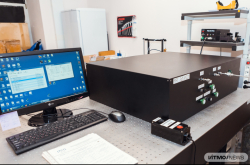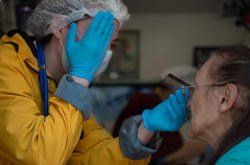Let’s start by talking about who your students are and what they do. Are they all medical specialists or do some of them come from other backgrounds?
Anton Barchuk: Right now, we have 12 students, of whom 70% are doctors and medical specialists. In truth, we have quite a diverse student body, all of them at different stages of their path as researchers. Some of them are already publishing papers in major medical journals. Artemy Okhotin, for instance, is working on pandemic-related research. Oksana Stanevich is an infectionist and is involved in research, too. Evgeny Bakin has a lot of publications on his studies of oncohematological patients and the development of data-based predictive models.
There are newcomers, too, making their first steps. Take Irina Gorbunova, who works as a data analyst at SberHealth (an online medical consultation platform – Ed.) – just recently, we spoke with her about the kind of research she could conduct at the platform and how its data could be used.
Ksenia Spiridonova: Irina is an ITMO graduate who spent some time working in the industry, but eventually lost interest. As she says herself, it’s important for her to help people; she’s interested in health and medicine and happened to come across our program. She started doing data analysis at SberHealth after she already enrolled in the program. We think it’s a great example of a person looking for ways to apply their hard skills and finding an unusual solution.
Then there’s Tatiana Zaborova, a philologist who worked as an English teacher. She became interested in epidemiology during the pandemic: she wanted to find out how it works and why it happened like it did. She’s had the most radical career change out of all our students.
Is it challenging for students without a medical education?
KS: Similar programs from abroad have shown that it’s not just medical specialists who apply for them. These programs attract people from all walks of life since it’s not medicine in the conventional sense, but health science. And that’s relevant to people who majored in economy, social sciences, or biology, too.
Our program is structured in a way that provides all students with the necessary background knowledge. For instance, we have a class called Principles of Evidence-Based Medicine. You don’t need prior medical education to work in public health, and global practice has shown this to be the case.
Of course, we can’t say it’s an easy transition. But it’s a relatively accessible one.
Ksenia Spiridonova. Photo by Dmitry Grigoryev / ITMO.NEWS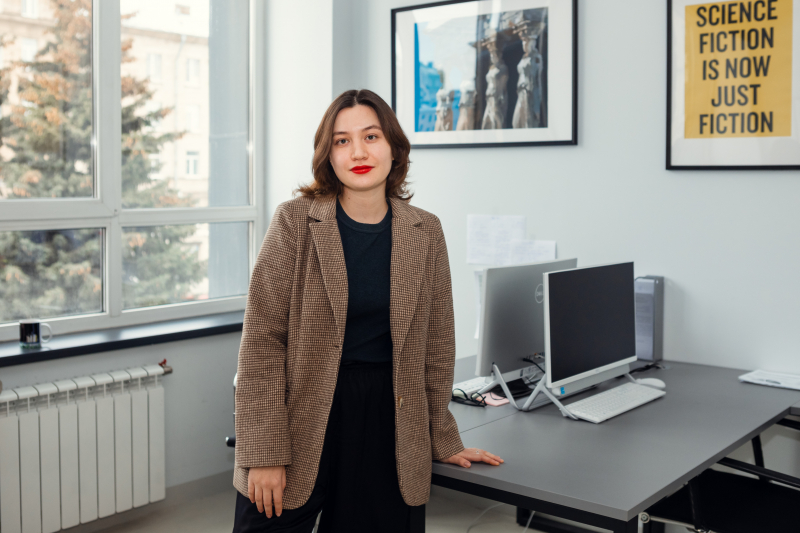
In their second year, students take an active role in research. What sort of things will they do?
AB: Starting with the first semester, most courses already involve group and individual projects. It’s a sort of training for full-on research. During the second year, students start to work harder on their theses and research projects. It’s important for us to allow them to work on their own initiatives. Our task is to provide resources and advice.
For example, some of our students are practicing medical specialists and we’re planning to conduct joint research with the clinics where they work. We already have a partnership with Lahta Clinic – right now, we’re discussing the innovations that could be incorporated into their practice, such as ophthalmological screening of patients with diabetes that would help prevent loss of vision.
We’re also talking with students about launching mental health-focused research at ITMO. We want to collect and analyze information together with those of our colleagues who are already involved in the subject, to look for possible patterns, and to propose ways to remedy mental health issues.
Tell us about your teaching staff. Are they mostly members of academia?
AB: A lot of our lecturers are participants of the ITMO Fellowship & Professorship program. We find it very important to expand the network of collaboration and make the program more international. In light of our focus on research, it’s important to have well-established connections with partners from universities in other countries.
Our international staff are involved in courses on evidence-based medicine, the economy of healthcare, and epidemiology. We’ve tried to bring in lecturers with different backgrounds so that they wouldn’t just teach theory, but also provide students with an understanding of what it is they do, what kind of projects they develop, and where they work.
Anton Barchuk. Photo by Dmitry Grigoryev / ITMO.NEWS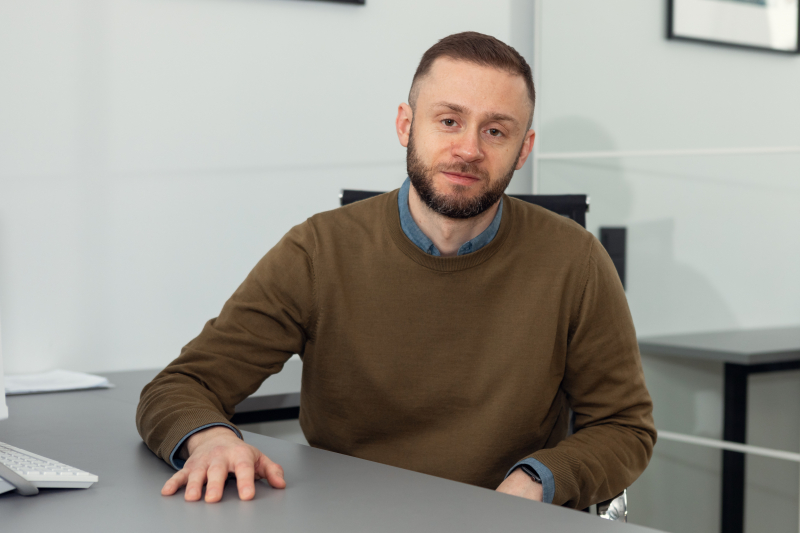
Do you plan to offer internships abroad?
AB: Right now we’re looking into relevant programs that would be beneficial to our students. We’re looking at countries that contribute heavily to epidemiological research and public health science research; but we’re also thinking about new markets. For one, we recently held an open-door day for applicants from Latin America. It’s important because we see our students as ambassadors for this field of science. And we hope they’ll help us develop our program at ITMO further.
ITMO has great academic mobility services, so our students will have interesting options to choose from. And it’s just as important to us that this program attracts students who choose to study in English.
And what about industrial collaborations? Will students be able to train and intern at partner companies?
KS: We’re already forming a foundation for that; we’ve got many ideas and we hope that by fall we’ll already have a pool of partners with whom we collaborate and where our students can do internships. We already have agreements with Scandinavia Clinic, Lahta Clinic, the Almazov National Medical Research Centre, the Petrov Research Institute of Oncology, and the Ilyinsky Hospital. Besides, we believe that some of the students will want to do their practical training at clinics and medical centers where they’re already employed – that’s an acceptable option, too. We just want to provide them with a varied choice so that they can try doing other things.
The field is there: there are companies that provide health-related services and products. The aforementioned SberHealth, for instance, if we’re talking about Russia. We like to believe that they all adhere to the practices of evidence-based medicine and therefore need people capable of doing the necessary research.
Ophthalmological screening. Credit: photogenica.ru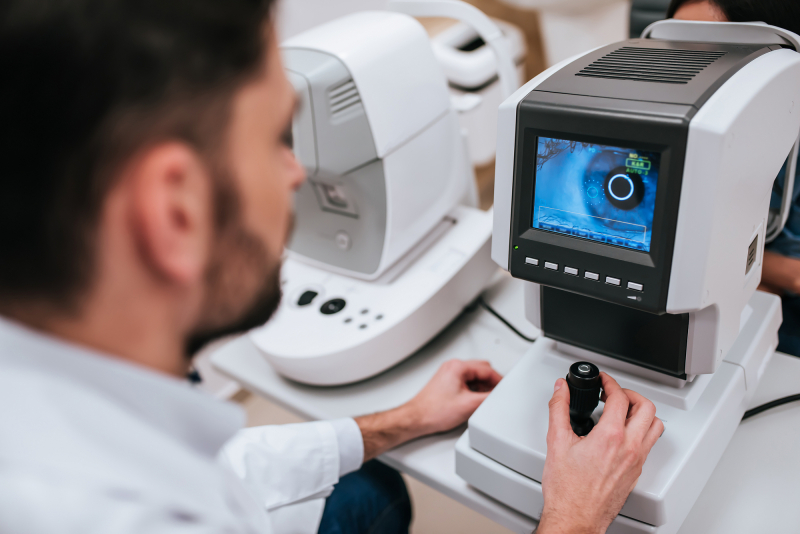
AB: We teach our students a standard set of evidence-based practices. And it doesn’t matter whether the research is being done at a university, a company, or independently. It’s done based on established criteria related to research structure, ethics, data analysis, and the presentation of findings. It all follows the trend of scientific transparency and open data, which is now becoming more popular in academia.
There are independent companies that conduct health research, and that’s one of the possible directions for our students. Many companies today need people who can generate hypotheses, design studies, and analyze data properly. We teach students to do all these things so that by the end of their studies, they would have been through every stage: from idea to publication.
Speaking of our colleagues at Lahta Clinic, on July 16-17 ITMO will host the second (Non-)Conference – an event for doctors, attending physicians, and medical interns. At the conference, we’ll cover not only challenging medical subjects, but also, for instance, communication skills. In this joint initiative, we see a great space for future projects.




